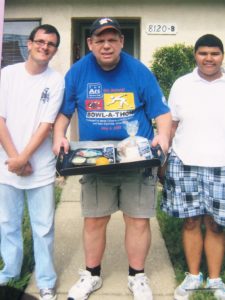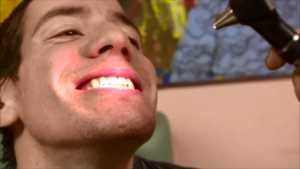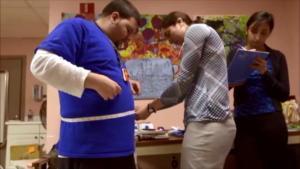Chapter Volunteers Reduce Food Insecurity Through Community Service
 By Nancy Stubbs, Development Director, The Arc Nature Coast
By Nancy Stubbs, Development Director, The Arc Nature Coast
On October 16th, we recognize World Food Day. According to the Corporation for National and Community Service (CNCS), 49 million people in the United States – including 16 million children, do not have reliable access to affordable, nutritious food. Providing food assistance is one way that communities can help improve all people’s access to healthy food. Through funding from CNCS, The Arc helps 10 chapters around the country organize service projects that aid community members in need.
Our chapters partnered with local service clubs and hunger-focused groups (e.g., community food banks, food pantries, soup kitchens) on events around the 2016 and 2017 Martin Luther King, Jr. Day of Service, and throughout the year to provide food assistance to community members who experience food insecurity. In the first year of funding, our chapters have recruited 690 volunteers who have contributed over 5,360 hours of service to feed over 9,833 people in need.
One such chapter, The Arc Nature Coast in Brooksville, Florida, addressed their lack of access to nutritious food by delivering local produce to nearby food banks, which typically serve canned and/or processed foods. First, The Arc Nature Coast met with local farmers to learn what fresh fruits and vegetables were in season. Next, The Arc Nature Coast partnered with the farmers to distribute fresh produce to 235 recipients at four different food banks. Additionally, The Arc Nature Coast partnered with their local Meals-on-Wheels program to deliver meals to senior citizens on a weekly basis.
Both projects enabled individuals with intellectual/developmental disabilities to work alongside farmers and volunteers. Feedback from volunteers with disabilities has been very positive, and suggests that participation had a positive effect on their self-esteem and feelings of inclusion. One volunteer stated, “They (recipients of Meals on Wheels) are counting on me to be there to bring them their food. They wouldn’t have food to eat if I didn’t help them.” Another added that, “it makes me feel good to help people.”


 Brian Armour, PhD is an economist with the Centers for Disease Control and Prevention (CDC). He has spent over 15 years in health services research, including work on helping design the
Brian Armour, PhD is an economist with the Centers for Disease Control and Prevention (CDC). He has spent over 15 years in health services research, including work on helping design the 
 Although February is technically National Children’s Dental Health Month, oral health is important for people of all ages!
Although February is technically National Children’s Dental Health Month, oral health is important for people of all ages!





